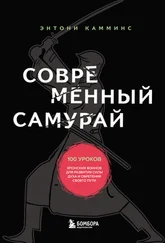Жанин Камминс - American Dirt
Здесь есть возможность читать онлайн «Жанин Камминс - American Dirt» весь текст электронной книги совершенно бесплатно (целиком полную версию без сокращений). В некоторых случаях можно слушать аудио, скачать через торрент в формате fb2 и присутствует краткое содержание. Город: London, Год выпуска: 2020, ISBN: 2020, Издательство: Tinder Press, Жанр: Современная проза, на английском языке. Описание произведения, (предисловие) а так же отзывы посетителей доступны на портале библиотеки ЛибКат.
- Название:American Dirt
- Автор:
- Издательство:Tinder Press
- Жанр:
- Год:2020
- Город:London
- ISBN:978-1-4722-6138-0
- Рейтинг книги:5 / 5. Голосов: 1
-
Избранное:Добавить в избранное
- Отзывы:
-
Ваша оценка:
- 100
- 1
- 2
- 3
- 4
- 5
American Dirt: краткое содержание, описание и аннотация
Предлагаем к чтению аннотацию, описание, краткое содержание или предисловие (зависит от того, что написал сам автор книги «American Dirt»). Если вы не нашли необходимую информацию о книге — напишите в комментариях, мы постараемся отыскать её.
FEAR KEEPS THEM RUNNING.
HOPE KEEPS THEM ALIVE.
Vivid, visceral, utterly compelling, AMERICAN DIRT is the first novel to explore the experience of attempting to illegally cross the US-Mexico border. cite empty-line
9
empty-line
11 empty-line
14
American Dirt — читать онлайн бесплатно полную книгу (весь текст) целиком
Ниже представлен текст книги, разбитый по страницам. Система сохранения места последней прочитанной страницы, позволяет с удобством читать онлайн бесплатно книгу «American Dirt», без необходимости каждый раз заново искать на чём Вы остановились. Поставьте закладку, и сможете в любой момент перейти на страницу, на которой закончили чтение.
Интервал:
Закладка:
As Rebeca reveals what scraps of story she does have to Luca, he starts to understand that this is the one thing all migrants have in common, this is the solidarity that exists among them, though they all come from different places and different circumstances, some urban, some rural, some middle-class, some poor, some well educated, some illiterate, Salvadoran, Honduran, Guatemalan, Mexican, Indian, each of them carries some story of suffering on top of that train and into el norte beyond. Some, like Rebeca, share their stories carefully, selectively, finding a faithful ear and then chanting their words like prayers. Other migrants are like blown-open grenades, telling their anguish compulsively to everyone they meet, dispensing their pain like shrapnel so they might one day wake to find their burdens have grown lighter. Luca wonders what it would feel like to blow up like that. But for now he remains undetonated, his horrors sealed tightly inside, his pin fixed snugly in place.
CHAPTER SEVENTEEN
For both Lydia and the sisters, there’s a constant tug-of-war between the gruesome feeling that something’s chasing them, that they must move quickly away, and a physical hesitation, a reluctance to move blindly toward whatever unknown demons may loom in the road ahead. The Casa del Migrante they find in Celaya is a respite from that tug-of-war, and as such, after a sleepless night outdoors for Lydia, a holy blessing without compare.
It’s only midday when they arrive. Luca and Rebeca play basketball in the yard and no one else can join, some complicated game with jumbled rules of their own devising. Lydia and Soledad sit quietly together, watching from a nearby bench. They help in the kitchen, listening to las noticias on television, and then Lydia naps. When she wakens, she watches her son playing dominoes with Rebeca. She notes how quickly those two have bridged the gap between their respective ages, eight and fourteen – Luca seems to have grown up and Rebeca to have simplified quite neatly – so they meet seamlessly in the middle. It feels as though they’ve known each other forever, as though these girls have always been here, waiting to become a part of their lives. That night Luca asks if he can snuggle in beneath Rebeca’s arm in her bunk.
‘It’s not appropriate.’ Lydia draws the line.
Luca knew it was a long shot anyway, but hardly any of the rules from his old life seem to apply anymore, so he figured it was worth asking. He climbs in bed without complaint. Lydia hauls her backpack beneath the sheets by her feet and wraps its strap twice around her ankle. They all sleep soundly. Glory, glory to have a door with a lock.
Soledad has told Lydia nothing of where she and her sister came from or what they endured. Lydia’s said nothing of her family’s circumstances either, but there’s that silent bond of knowing between them regardless, a magic that’s marginally maternal, but entirely female. So it’s not surprising that in the morning, the girl, who seems much older than just the eighteen months that separate her from her sister, and who’s not typically so forthcoming about private matters regarding her body, confides to Lydia that she’s pregnant. Taking her cue from Soledad, Lydia endeavors to deliver her response to this news in a calm, unvarnished manner.
‘Your baby will be a US citizen,’ she whispers across the top of her coffee cup.
Soledad shakes her head and stands up from the table to clear her plate. ‘The baby isn’t mine,’ she says. When she stretches her arms above her and her baggy T-shirt grazes the waist of her jeans, her tummy is still flat.
That day and night at la casa are so significant in their restorative value that, in the weeks to come, when they think back to the halcyon memory of this place, their stay here will seem much longer than it was. Like all priests in Mexico, the padre who runs la casa wears regular street clothes, a yellow polo shirt and a softened pair of blue jeans with a tar stain on one leg. His only religious adornment is a simple wooden cross that hangs from a leather cord around his neck. He’s slender, with gray hair and glasses. There are more than twenty migrants resuming their journey today, and the padre gathers them in the yard before they leave. He gives a speech that Lydia thinks of as a kind of pep talk with an identity crisis – because he means to encourage them, but there’s no pep in his talk. He stands on an upturned milk crate in front of the gathered crowd, and mostly, he warns them.
‘If it’s possible for you to turn back, do so now. If you can go home again and make a life for yourself where you came from, if you can return there safely, I implore you: please do so now. If there is any other place for you to go, to stay away from these trains, to stay away from el norte, go there now.’ Luca has his arm around Rebeca’s waist, his head leaning in, her arm around his shoulder. Lydia looks at their faces; they do not flinch from these hard words. Some of the other migrants shift their weight nervously beneath them. ‘If it’s only a better life you seek, seek it elsewhere,’ the padre continues. ‘This path is only for people who have no choice, no other option, only violence and misery behind you. And your journey will grow even more treacherous from here. Everything is working against you, to thwart you. Some of you will fall from the trains. Many will be maimed or injured. Many will die. Many, many of you will be kidnapped, tortured, trafficked, or ransomed. Some will be lucky enough to survive all of that and make it as far as Estados Unidos only to experience the privilege of dying alone in the desert beneath the sun, abandoned by a corrupt coyote, or shot by a narco who doesn’t like the look of you. Every single one of you will be robbed. Every one. If you make it to el norte, you will arrive penniless, that’s a guarantee. Look around you. Go ahead – look at each other. Only one out of three will make it to your destination alive. Will it be you?’ He points at a man in his fifties with a neatly trimmed beard and a fresh T-shirt.
‘ ¡Sí, señor! ’ the man answers.
‘Will it be you?’ He points to a woman about Lydia’s age with a silent toddler on her hip.
‘ ¡Sí, señor! ’ she says.
‘Will it be you?’ he points at Luca.
Lydia feels a crush of wild despair steal over her, but Luca lifts his small fist in the air and shouts his response. ‘¡Sí, seré yo!’
The speech does the job of energizing the migrants and steeling their resolve, which in turn makes them restless and impatient during the long wait for the train. In the third hour, a few give up waiting and begin to walk. In the fourth and fifth hours, more follow. Luca, Lydia, and the girls head toward the western edge of the city in search of an overpass, but the only one they find is way too high. Jumping from there would be suicide. So they search instead for a curve where the train might slow down. It’s midafternoon by the time La Bestia finally arrives, and it’s more crowded than they’ve seen it before. Even from a distance, Lydia can see the silhouette of migrants atop the cars. It’s moving much faster than when they boarded yesterday at San Miguel de Allende.
Lydia nearly says they should wait, they’re not going to make it. She wants to articulate her hesitation, but she’s not quick enough, and now the train is too loud. The noise thunders into her bones. They all run, and she holds Luca’s hand tightly in her fist. The men atop the train shout down to them, instructions and encouragement. Rebeca goes up first, and then Soledad, who reaches back for Luca. He grabs at her with his free hand, and there’s a terrifying moment where he’s stretched between them, one arm taut with Soledad on the shrieking beast, and the other linked to Lydia racing beneath. He’s like taffy, soft and exposed. And then Lydia hurls his little arm toward the train, and he’s up. Soledad has him, and then the men from above, lifting. He is safe, he is safe. Lydia runs, not yet relieved, not until she joins him there, she runs and the train is picking up speed and she’s falling behind the ladder, and she can’t keep up, and then a burst of panic makes her legs go like pistons and she grabs at the metal bars, terrified, terrified that her legs won’t be able to maintain this speed, that they’ll drop, that she’ll go under, but this is not her day, because all at once her feet have found the bottom rung, and her hands are only one rung above them, and the train is picking up speed so quickly now, she can’t believe the velocity, but her body, all four of her limbs are attached to the train now, and she’s curled there at the bottom of the ladder like a bug, and she allows herself one tiny sob of relief before she uncurls herself and, pushing up from the bottom rung, begins to climb. When she gets to the top she reaches for Luca, and she straps them down quickly with the belts, and then she holds him and cries quietly into his hair until her heart begins to calm.
Читать дальшеИнтервал:
Закладка:
Похожие книги на «American Dirt»
Представляем Вашему вниманию похожие книги на «American Dirt» списком для выбора. Мы отобрали схожую по названию и смыслу литературу в надежде предоставить читателям больше вариантов отыскать новые, интересные, ещё непрочитанные произведения.
Обсуждение, отзывы о книге «American Dirt» и просто собственные мнения читателей. Оставьте ваши комментарии, напишите, что Вы думаете о произведении, его смысле или главных героях. Укажите что конкретно понравилось, а что нет, и почему Вы так считаете.












